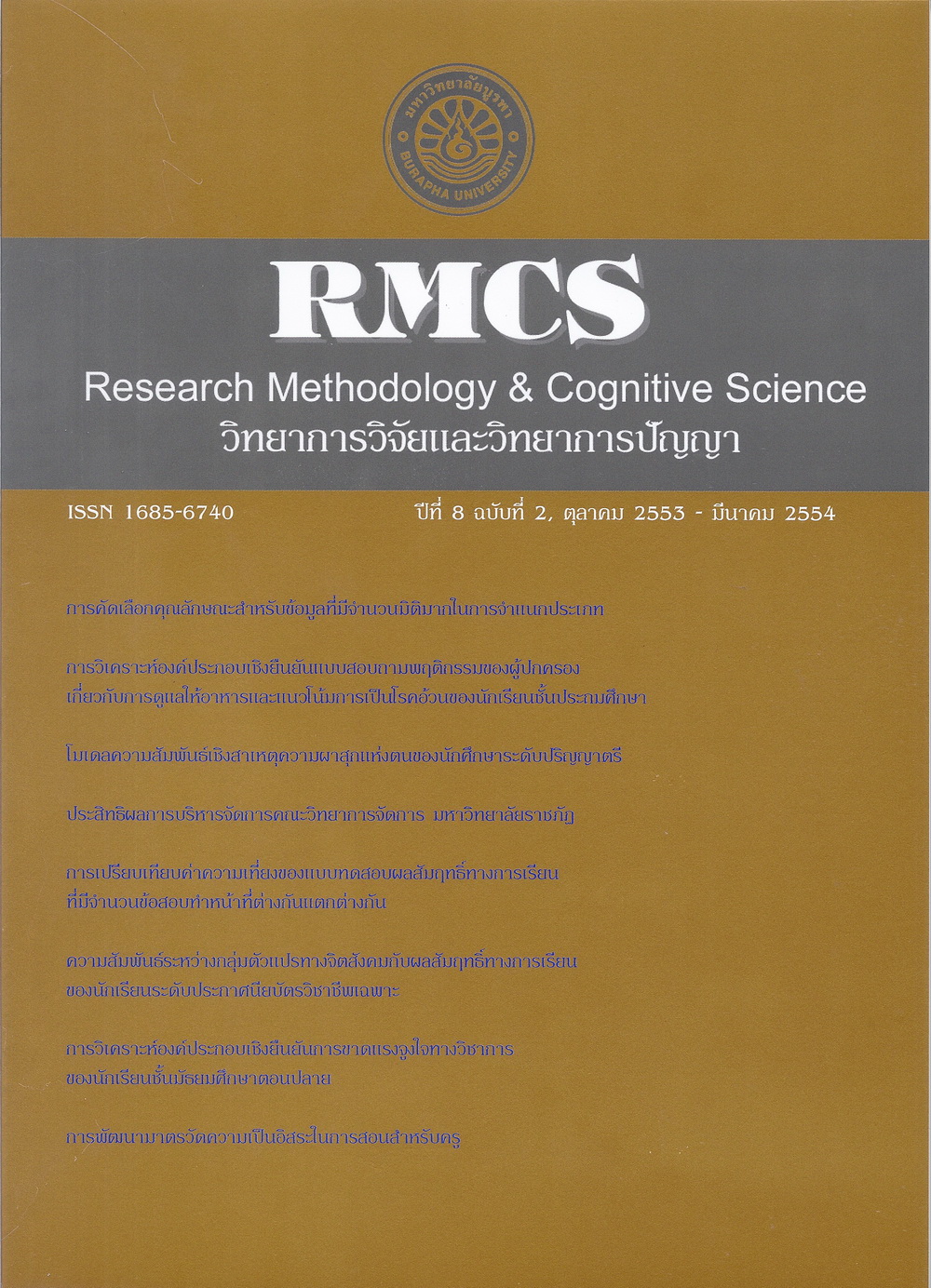โมเดลความสัมพันธ์เชิงสาเหตุความผาสุกแห่งตนของนักศึกษาระดับปริญญาตรี
Main Article Content
Abstract
A Causal Relationship Model of the Subjective Well-Being of Undergraduate Students
The purpose of this research was to develop and validate a Causal Relationship Model of the Subjective Well-being of Undergraduate Students. The model consisted of five latent variables: subjective well-being, autonomous motivation, self-esteem, learning environment, and perceived positive feedback. The sample, derived by means of multi-stage sampling, consisted of 450 undergraduate students of Burapha University, in the 2009 academic year. The research instruments were a Subjective Well-being Scale, an autonomous motivation scale, a self-esteem scale, a learning environment scale, and a perceived positive feedback scale. Descriptive statistics were generated using SPSS; causal modeling involved the use of LISREL 8.80. Result indicated that the model was consistent with empirical data: Chi-square test of goodness of fit = 32.08, p = .08, df = 22, GFI = 0.99, AGFI = 0.95, CFI = 1.00, SRMR = 0.02, RMSEA = 0.03. The variables in the model accounted for 37% of the variance of subjective well-being. Variables having a statistically significant direct effect on subjective well-being were autonomous motivation, self-esteem, and perceived positive feedback. The variables with statistically significant indirect effects on subjective well-being, affecting through autonomous motivation, and self-esteem, were learning environment, and perceived positive feedback.

